Below is the letter from Dr. Aaron Adams, BTT’s Director of Science and Conservation to Hon. V Alfred Gray, Bahamas Minister of Agriculture and Marine Resources detailing BTT’s position on the proposed Bahamas Flats Regulations.
_____________________________________________________________________________
May 13, 2016
Hon. V Alfred Gray, Minister of Agriculture and Marine Resources
Dear Mr. Gray:
I write to you to provide comments on the proposed “FISHERIES RESOURCES (JURISDICTION AND CONSERVATION) (FLATS FISHING) REGULATIONS, 2016” dated April 06, 2016. I write to you as Director of Science and Conservation of Bonefish & Tarpon Trust, an international, non-profit, membership-based conservation organization based in Florida, USA. BTT’s mission is to protect and conserve bonefish, tarpon, permit and their habitats so that healthy fisheries can be sustained. BTT envisions its role as provider of biological information to resource management agencies, guides, and lodges so that they have the best available information to use as they formulate conservation strategies.
I commend your interest in protecting the economically and culturally important recreational bonefish fishery in the Bahamas.
It is BTT’s assessment that the top threats to the long-term health of the bonefish fishery in the Bahamas are habitat loss, degradation, and illegal netting. This is not unique to the Bahamas – the same threats are impacting the bonefish fisheries in Belize, Mexico, Cuba, and Florida. Although the Draft Regulations address many management aspects of the fishery, there is no mention of flats habitat conservation and protection, which are essential components of a comprehensive conservation plan.
As defined in the Draft Regulations, the flats environment is characterized by water between 0-6’ depth with a long shallow grade. The flats environment is made up of a myriad of different habitats that bonefish and many other economically and ecologically important species utilize. Without habitat protection and enforcement of current laws, the flats environment is vulnerable to destructive development and illegal fishing that will be detrimental to the environment, the fishery, and the Bahamian people.
BTT has been working with the Bahamas National Trust, Cape Eleuthera Institute, College of the Bahamas, Fisheries Conservation Foundation, Abaco Fly Fishing Guides Association, and many lodges and guides for many years to identify the habitats upon which bonefish depend. The goal of this research is to provide information to Department of Marine Resources, BNT, and others so that they can prioritize areas for conservation and protection. This research has allowed us to identify bonefish feeding areas, spawning migration pathways, and spawning locations on many islands. The feeding areas directly support the fishery, whereas the spawning pathways and spawning locations are essential to the future of the fishery. It is essential to protect all of these habitats to ensure a healthy fishery. This is especially true of bonefish spawning locations, which are in deep water that will not be protected by protections of only flats habitats. Nassau grouper provide a cautionary tale on the importance of spawning site protections. Therefore, I encourage you to incorporate a habitat conservation component as the core to your overall conservation strategy.
It is also unclear how the permit (license) application process and the limitations listed for the permit will impact bonefish research? Our research is already conducted under a permit from Fisheries, but it is unclear if the proposed regulations will supersede the Fisheries research permit. This is of concern since bonefish are captured for tagging research using both seine nets and hook and line, and by scientists and in partnership with guides.
Based on BTT’s experience in other flats fishing regions, we also offer comments on the fishing license. In the current draft of the legislation it is has listed two different licenses for flats fishing. Shouldn’t there only be a single license that is easily attainable either online or at the local island administrator’s office? There should also be no need for a customs officer to stamp an angler’s license when they enter the country. Once a license has been bought it should not have to be verified by another entity. Only a fisheries officer and other law enforcement should be able to check anglers for fishing licenses. To my knowledge, no US state or other bonefish fishing location has such a procedure, instead requiring only personal information and the required fee. The license fees should be affordable. Charging an angler $50 per day to flats fish is significantly higher than you find anywhere else in the region.
The establishment of a Conservation Fund is an excellent idea. However, it is unclear in the Draft Regulations to what entity and for what purpose the funds will be allocated. This has been an item of concern in many states in the US, as well as in Belize. License fees should be dedicated entirely to conservation, fisheries management, and enforcement. When this is the case, they receive strong support from the recreational fishing community. I realize that partial allocation of fees to a specific fund, such as the Conservation Fund, is a great step forward in Bahamas regulations, but I urge you to consider total allocation of these fees to the Conservation Fund.
As you know, an economic report commissioned in 2010 by BTT, Bahamas National Trust, and Fisheries Conservation Foundation found that the annual economic impact of the recreational bonefish fishery exceeded $141 million, with the greatest relative impacts in the Family Islands. Further, the cultural importance of the fishery on the Family Islands is reflected by the occurrence of the family relations of bonefish guides – an occupation proudly passed from fathers to sons, among brothers and cousins. Given the economic and cultural importance of the fishery, the need for conservation of the fishery and habitats is clear.
The report also showed that anglers that travel from the United States, Canada, and Europe to fish for bonefish in the Bahamas contribute to the Bahamas economy in multiple ways. Many anglers stay at fishing lodges, where their expenditures support guides and lodge staff. Other anglers stay at hotels and guest houses, where their expenditures support the local communities where they stay. Moreover, these anglers spend more money per visitor night and more money per total visit than non-angler tourists.
DIY anglers contribute a significant amount to the Bahamian economy. In addition, many DIY anglers are second home-owners who either like to wade the flats or fish from their personal boat. Requiring anglers to have a guide if they are fishing from their personal boat in unnecessary, and no other country in the region or in the US or Canada require people who have a boat to hire a guide. For many of these anglers, being able to fish on their own and figure out the fishery for themselves is the one of the main attractions that brought them to the Bahamas.
Guide training is important, especially when it comes to interacting with clients. Currently, all a guide needs is a class B captain’s license, and then they receive training from other experienced guides out on the water. In the current draft it states that the BFFIA will be in charge of certifying guides. No private entity such as the BFFIA should be given the responsibility to certify guides. This leaves the door open for corruption and favoritism driven by political agendas. Government entities such as the Department of Marine Resources or Ministry of Tourism should be in charge of guide certification, with the focus on good service and safety when out on the water.
Finally, education is critically important. For example, the general assumption is that since the recreational bonefish fishery is catch and release, that the fishery is automatically sustainable. However, research has shown that if bonefish are improperly handled their chances of survival decreases more than six-fold. Therefore, BTT continually educates fishing guides and anglers about proper handling techniques to ensure that sufficient bonefish survive to maintain a healthy fishery. Education might be considered as an additional component to a comprehensive conservation plan.
Thank you for considering my comments on behalf of Bonefish & Tarpon Trust. I hope that BTT can continue to contribute to the conservation of the bonefish fishery in the Bahamas. As always, please consider BTT an information resource for your bonefish conservation efforts. Please don’t hesitate to contact me with any questions or concerns.
Sincerely,
Aaron Adams, Ph.D.
Director of Science and Conservation



